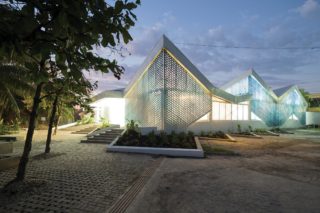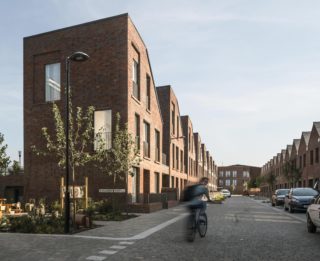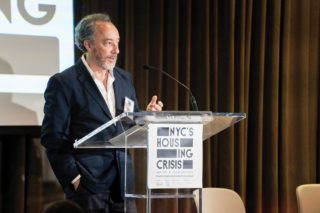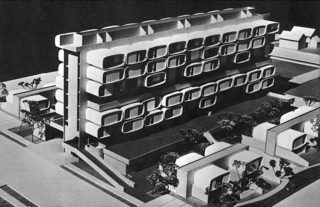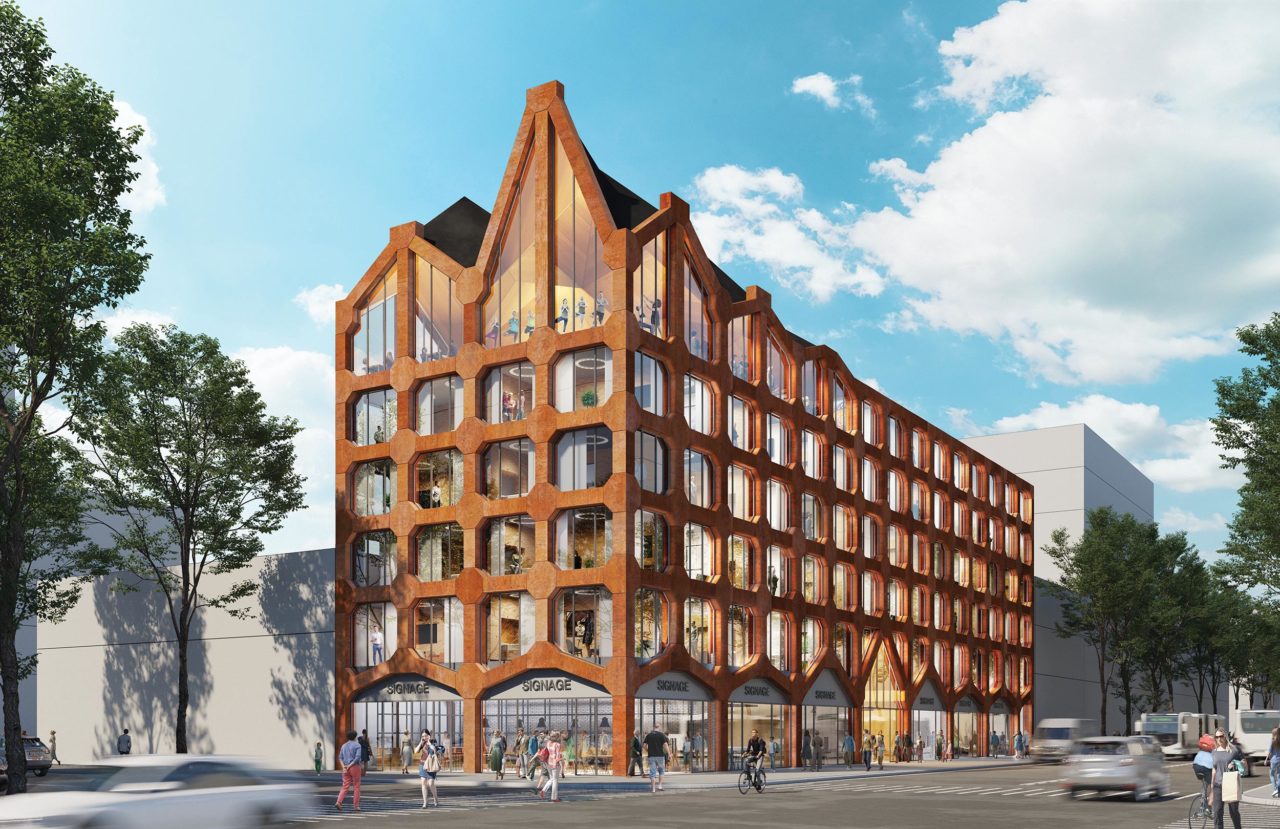
With a career-long commitment to examining the intersection of aging and architecture, Matthias Hollwich, founding principal of HWKN, is beginning to see years of intellectual work start to emerge as reality. Recently he launched a new residential brand, FLX LIVE, in collaboration with Mark Gilmour, former CEO of Virgin Residential. The FLX concept is based on what Hollwich calls a “double studio” apartment layout that allows renters to change the type of space they have, from a roommate-friendly layout that can transform to accommodate children or caregivers later in life. “Mark and I are totally aligned about the idea of creating a living product that is inspired by older people, but good for everyone,” says Hollwich.
The partners recently signed a contract with People+People, a community living company owned by a Berlin developer who commissioned an R&D project with the goal of licensing the FLX LIVE concept for its own sites. Six years after the publication of the manifesto New Aging: Live Smarter Now to Live Better Forever, which he co-authored with Bruce Mau Design, Hollwich sits down with the book’s contributor, Jennifer Krichels, to discuss the state of aging as the world reconfigures many aspects of work and life in reaction to the past two-and-a-half years.
JK: What are some of the projects coming out of the FLX LIVE brand?
MH: The People+People partnership is exciting because they did a lot of research on aging and intergenerational living, similar to us. There is this totally specialized senior-living kind of industrial complex that controls everything. Any-thing more open, more flexible, more inviting to more generations doesn’t really exist, so there’s a huge gap in the market. But it’s not just a business opportunity—it’s a human opportunity, because we have to fight segregation on every level. That’s what FLX and People+People want to be about.
We’re also working with two landowners on a site in East Orange, New Jersey. They’re taking over decommissioned churches and they want to make these very socially conscious places with amenities and living and schools and everything—they are thrilled about the FLX idea. Next month we’re going to start our first programming and massing on one of the sites.
There are opportunities in the world right now; the way we live is changing radically, technology is changing radically. We feel we have to grab them all at once to create a better type of project, because otherwise it’s just a better retirement community. We think there’s a moment of paradigm change we want to establish about how we live and age in our own future.

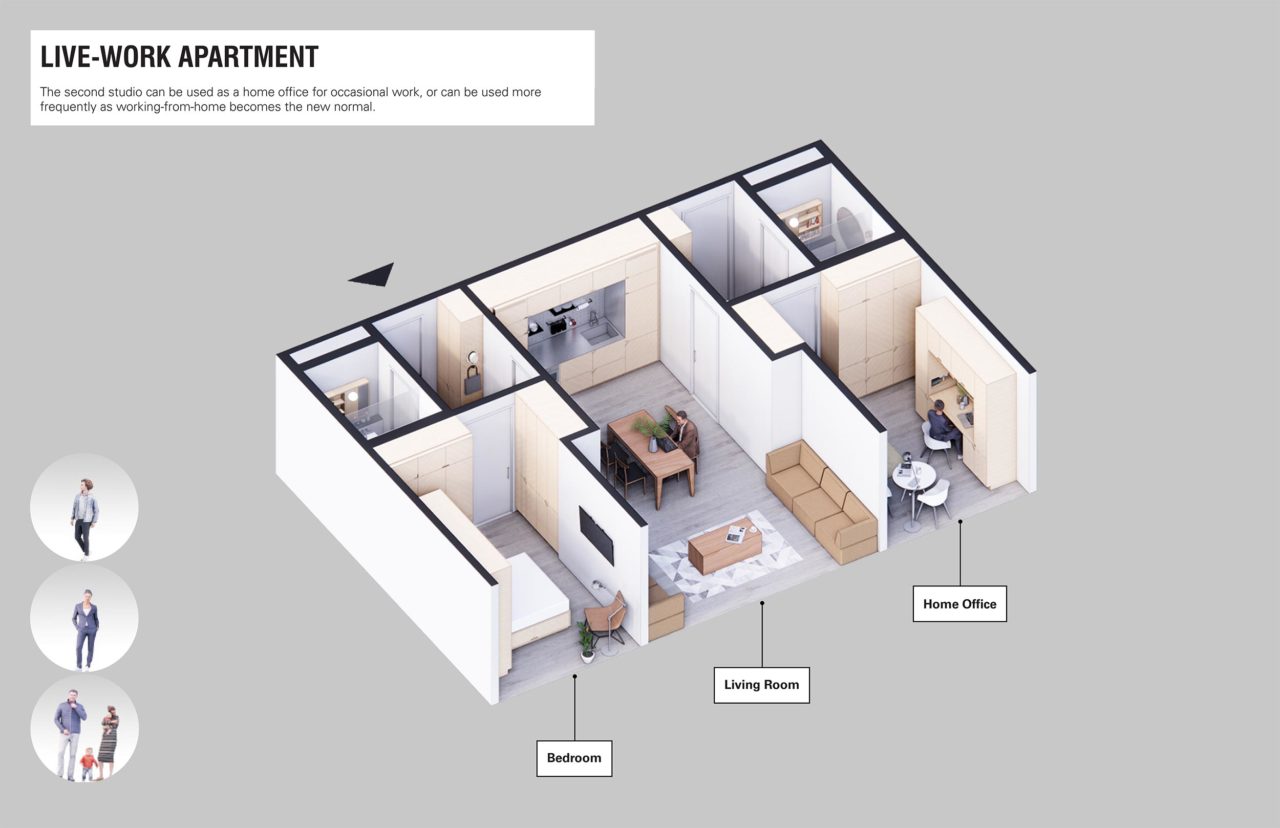
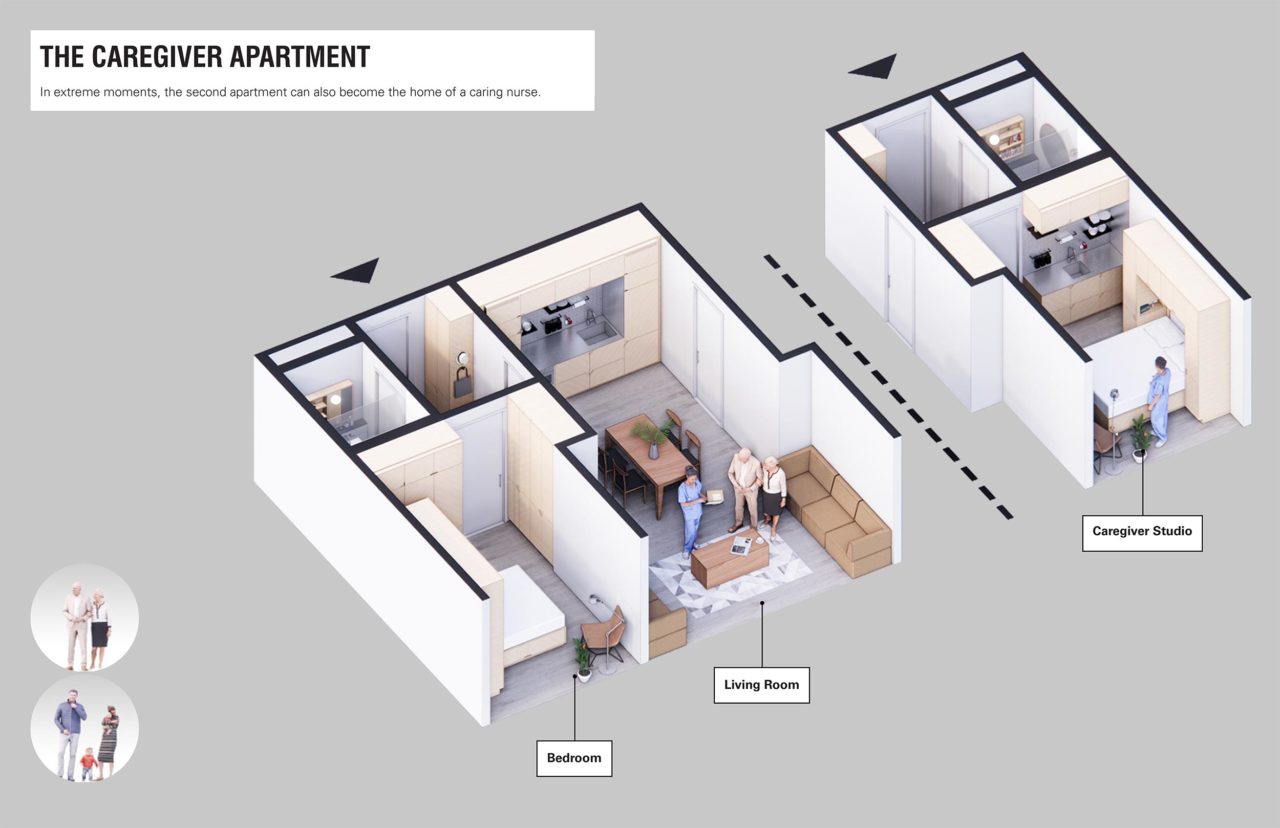
How are you working these concepts of aging into your own life?
I am on the board of Stonewall Village, an LGBTQ+ not-for-profit that is trying to establish healthier and better senior living for older LGBTQ+s in the city. It started out as a digital network, where you basically get help wherever you are—there are all these people you can talk to and connect to doing events throughout New York. When I joined the board, I started to talk about WeWork and WeLive and those sorts of things. They approached me and asked if it would be a good idea to build a senior LGBTQ+ building, and I said, “No!” because I don’t believe in those.
Instead, I told them about Sonder. It’s basically a predictable Airbnb—they’re renting or buying apartments throughout a city and renovating them to a standard and renting them out for a day, a week, or months. They don’t own one building; they operate a network of apartments. I told Stonewall this is what they should do: Find apartments throughout the city that you can then put into your support system and rent out to LGBTQ+ members when they’re at a certain threshold. And here’s the kicker—especially in the gay community, there are so many who don’t have people who want to inherit their properties. The pitch was basically to offer members an option to donate their apartment to Stonewall Village, so they then make it available to the next LGBTQ+ senior. So it is a network that becomes bigger and bigger and bigger, and more and more potent, through people donating their property into the system, with the condition, of course, that it needs to be used for low-income LGBTQ+ seniors.
Stonewall is about to buy the first apartment because now they want to prove the concept, so they are starting with one where it is being bought and renovated to senior-living standards, which HWKN will help them with. When this is done, they’re going to go out into the community and ask for donations. It’s a radically different idea but it has some merit, and it seems to be happening right now. It’s really exciting.
How have things changed in this conversation since New Aging was published?
When we worked on New Aging, it felt really trailblazing and exotic, and now reality is catching up, and that was our wish. People come to me and say they read the book and started to think about aging very differently.
We see that a lot of entrepreneurs are trying to get into this market with fresh eyes. I think there is going to be a lot of change in the way senior living is happening, and it’s all enabled through technology or more strategic thinking or network thinking. So old operators who did all these nursing homes and assisted living facilities should watch out, because the market is going to change a lot when young entrepreneurs offer great alternatives.









